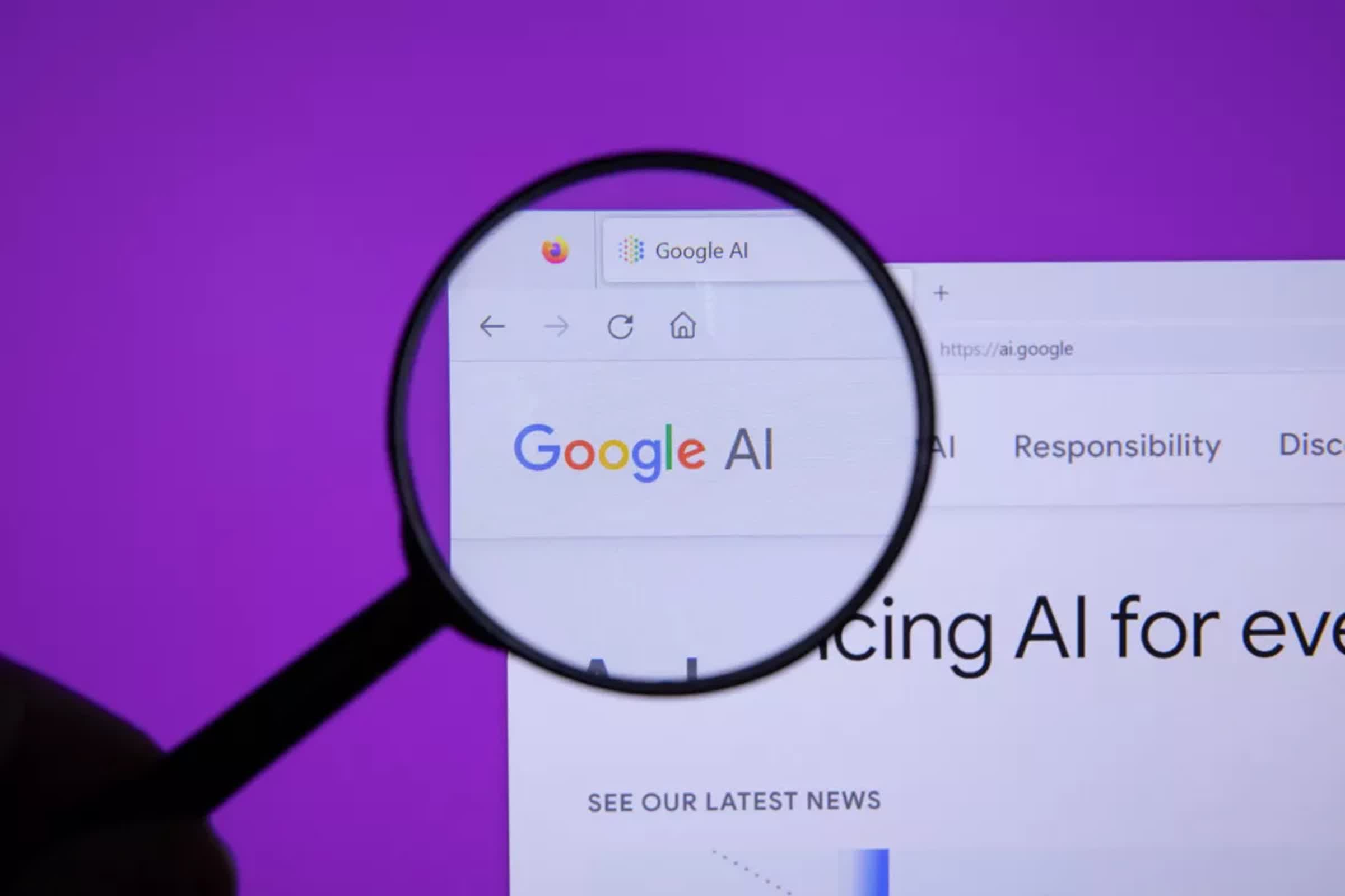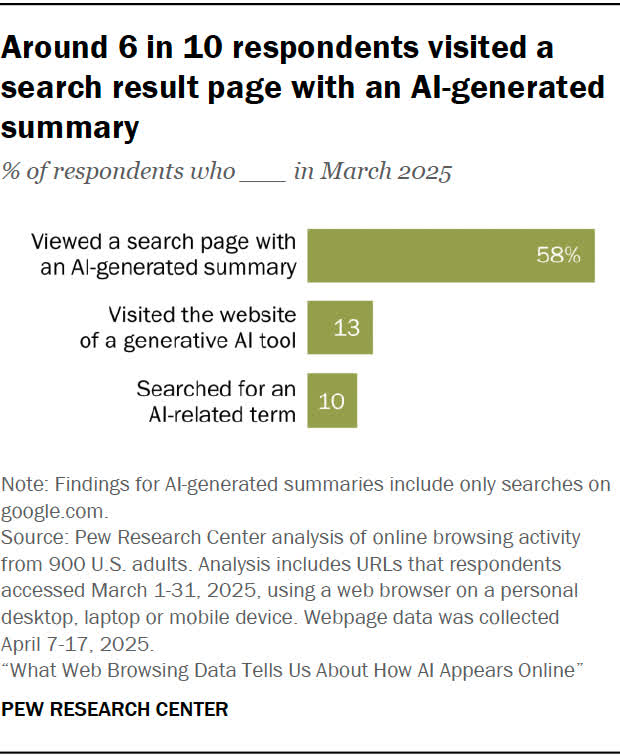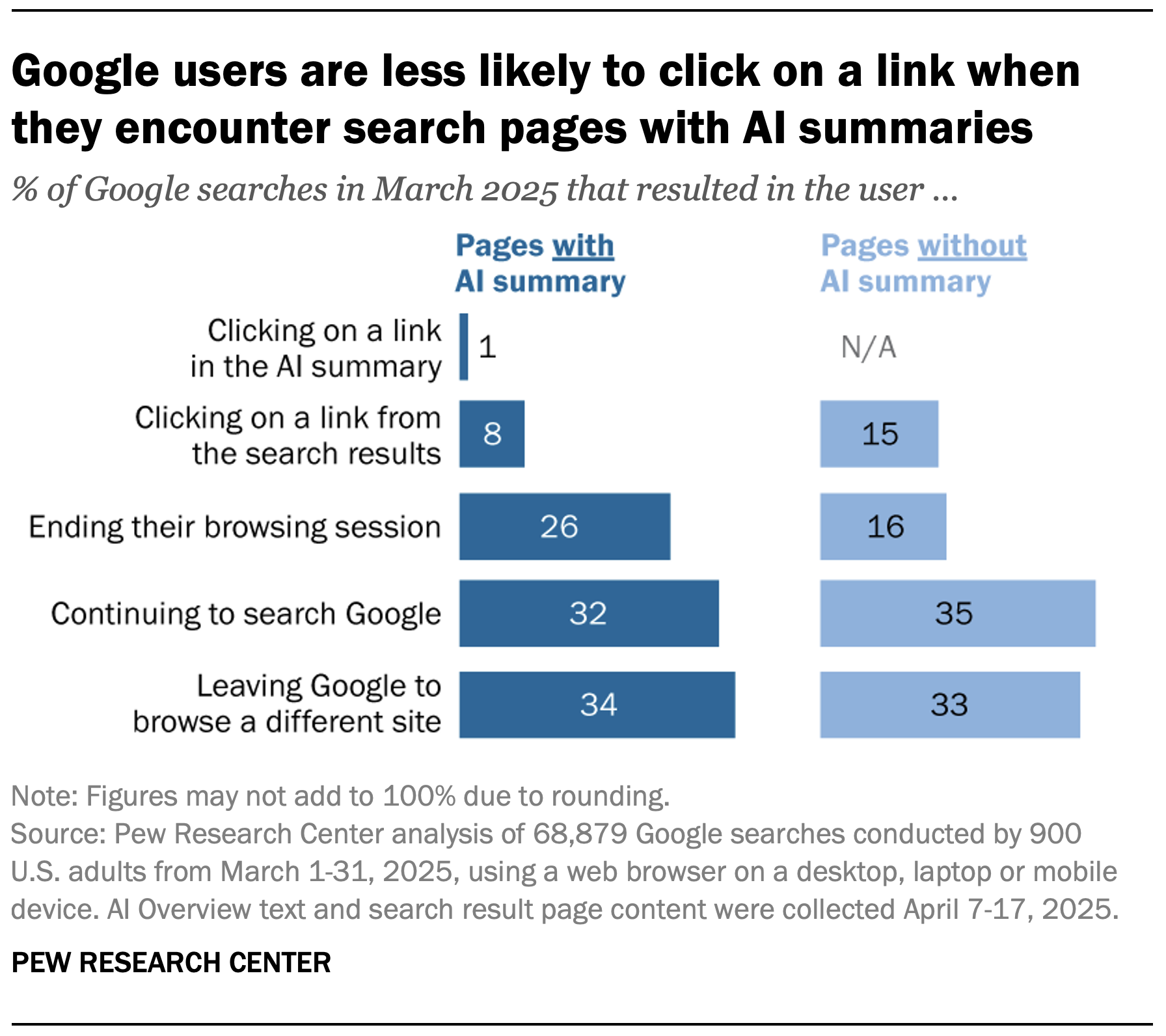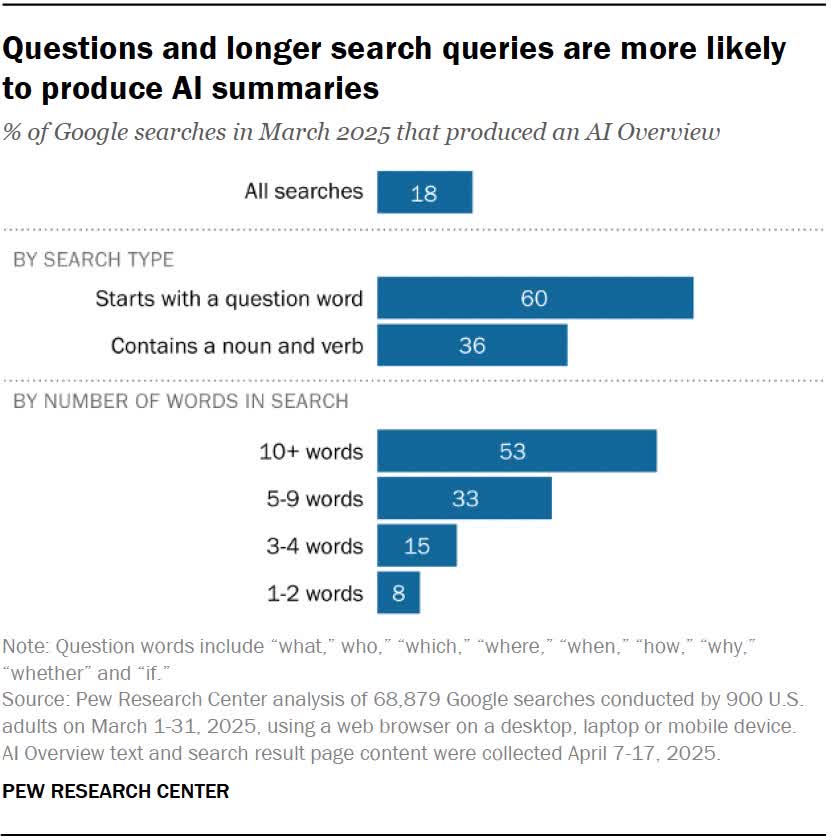In a nutshell: Google has long contended that its AI Overviews (AIO), which appear at the top of certain search results, don't take clicks away from websites. This is, of course, not true. And a new study proves it.
The Pew Research Center analyzed the browsing habits of 900 US adults who are members of the Ipsos KnowledgePanel for a month. The bottom line is that users are much less likely to click on links when an AI summary appears in search results.
According to the findings, around 6 in 10 people visited a search page with an AI-generated summary. 13% visited the website of a generative AI tool, and 10% searched for an AI-related term. Of the 68,879 unique searches during the study, 12,593, or around 18%, produced an AIO.
In searches without an AIO summary, users clicked on a traditional link in Google Search – not within the AI Overview – 15% of the time. When results include an AIO, that figure is almost halved to 8%.
Google often argues that people click on links within an AIO, sending them to the site where the information has been sourced, such as Wikipedia, YouTube, and Reddit, which account for around 15% of all AIO sources Pew examined. But this happened in just 1% of cases.
What's also concerning for websites is that more people ended their browsing session when an AIO appeared, suggesting they did not wish to check multiple sites for extra information – and to confirm that what the AI generated wasn't a fabricated hallucination.
The Pew Center says 1 in 5 searches now show AI Overviews, and Google is increasing the number of searches in which the AIO appear. Questions and longer search queries are more likely to produce these summaries. It was found that 60% of questions and 36% of full-sentence searches generated one.
We're seeing more stories about how AI and zero-click searches are killing the business model of the web that has sustained content creators for the last 15+ years. Cloudflare CEO Matthew Prince sounded a warning in May, and we covered the situation in depth last October.
While some will argue that being able to find an answer quickly and from multiple sources without clicking through several sites is easier and more convenient, there are obvious problems. Beyond the hallucinations, smaller independent websites – especially those that AI companies don't partner with – aren't going to want to create new content when they get paid nothing or almost nothing for doing so.
Like a snake eating its tail, we could end up with only a handful of massive, corporation-owned sites – visited by fewer and fewer people – that make most of their money from AI companies paying to scrape their content.



